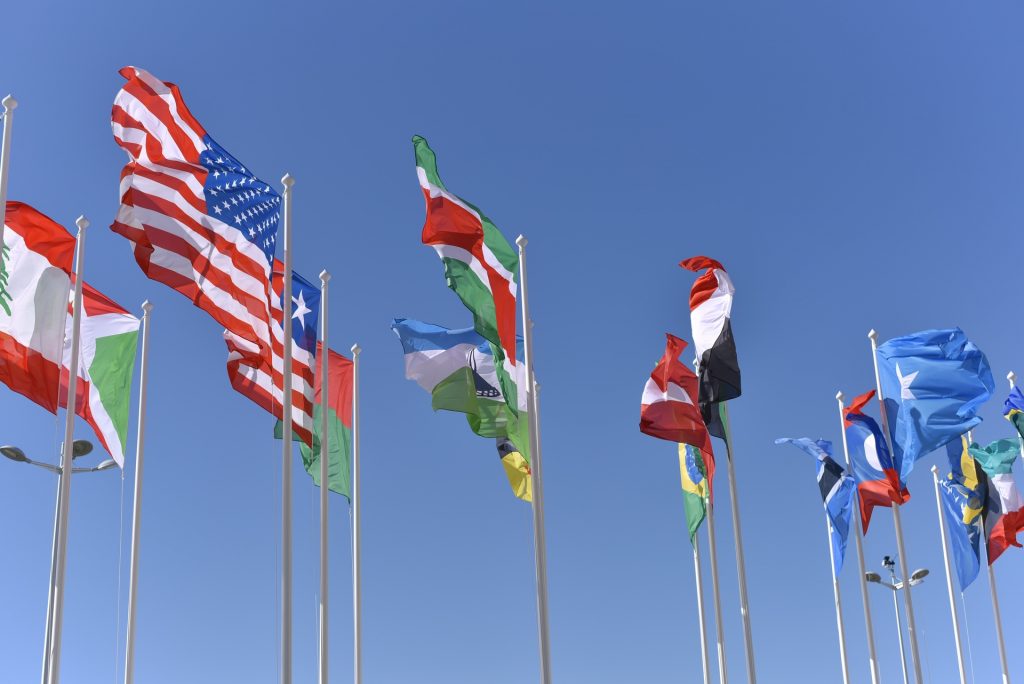
Not everyone has a king, but everyone knows what a kingdom is. You might call them a prime minister, or a president, or a governor or a sheik instead of a king. You might call the area they rule the country, or province, or state. Whatever you call them and whatever area they rule, the idea of a person having rulership over an area that contains many people is common to everyone on the planet. So when Jesus prays, “your kingdom”, we all know what He means. He is acknowledging that God is King, and He is talking about the rule of God. More than that, in the context of verse 9 (“hallowed be your name”), He is referring to the honor and reverence that is owing to God and to God’s reputation, not merely the respect of God’s laws and commands.
Of course, God Most High should be respected, revered and honored, and He should be obeyed in all things. Not only because He is Father, and not only because He is above us in heaven, but because He is The King – because His Kingdom includes our entire planet and all who dwell on it. After all, He made it – so it belongs to Him. Quite aside from the creation story in Genesis 1, Psalm 89 affirms, “The heavens are yours, and yours also the earth; you founded the world and all that is in it.” Psalm 24:1 says, “The earth is the Lord’s, and everything in it, the world, and all who live in it.” The Lord affirms in Ps 50:12, “the world is mine, and all that is in it.”
Consequently, we should all recognize God’s Kingship, even when He is not physically present in our line of sight. After all, we recognize the authority, the rights and the will of the political ruler of our country/province/territory. We may disagree with some of what they mandate and we might not ever see them in person. But we cannot disobey without penalty, and even if we do disobey, their rule is not overturned by our disobedience – it is only to our own great loss that we suffer as law-breakers.
Yet if such is true of an earthly king (though they be ungodly), how much more is it true of our heavenly king, who is not only godly, but God!
Moreover, even here on earth the upright of the land enjoy the blessing of the rule they abide by. Being a citizen of God’s Kingdom means that independent of circumstance, we can enjoy peace, righteousness and joy. For Romans 14:17 says, “For the kingdom of God is not a matter of eating and drinking, but of righteousness, peace and joy in the Holy Spirit.” Being a citizen of God’s Kingdom means our lives will be fruitful. Both internal fruitfulness (the fruit of the Spirit) and external fruitfulness (the result of practicing the gifts of the Spirit). It means living the abundant life – the Christ-life – for Jesus said, “I have come that they may have life, and have it to the full.” A life of wonder and adventure. A life of drawing near to God through every season – seasons of lament just as well as seasons of worshipful bliss. It is a life of enjoying the benefits of being a citizen of God’s Kingdom, just as we enjoy the benefits of being a citizen of the earthly ruler of the country we live in. It means joyful fellowship with both fellow saints and the Lord.
Likewise, just as the faithful earthly citizen does not fear parking tickets, fines, arrests, sentencing and jail time on account of their right relationship with their government, the citizen of God’s Kingdom does not fear guilt, fear and condemnation on account of their relationship with God.
God is our King, and we are His people. More than that, He is King AND our Father, so we are even more than citizens! If are princes and princesses. We are heirs. So just as those who belong to earthly countries sing the national anthem with pride, we proclaim God’s Kingdom with much enthusiasm and rejoicing in praying as Jesus prayed, “Your Kingdom come!”
Amen.
Man’s chief end is to glorify God, and to enjoy him forever.
the Westminster Shorter Catechism
APPLICATION: Worship
Praise the Lord for the benefits of being under His rule.

